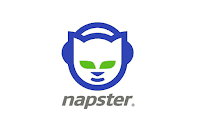#Week 1. Brilliant ideas and fast growing projects that didn't end up well
Welcome to my blog for the course SPEAIT. My name is Carlos Rodriguez and my first blog entry is dedicated to 3 tech failures that led to a shift in the way the business was doing up to the moment of the release. I will focus in services that particularly shocked me in my early youth.
Even though it ended up as a failure, It opened the way for many other platforms and above all, it made the music industry realize that the digital music was here to stay.
The physical keyboard was a very convenient feature when the touchscreens were not as developed as they went afterwards. The capability to respond to emails in a easy way with its own BB mail service and the most beloved app, the Blackberry Messenger which allowed instant messaging between blackberrys. For us to look at the proportion of the share of the market of Blackberry, at one time, BlackBerry controlled 50% of the smartphone market in the US and 20% globally
Around 2007 with the release of the first iphone was a serious threat for the company and they were unable to catch up with rapid market changing. Their shift to touchpad screens were not as good as expected since you could experience a lot of bugs and the later appearance of android mobile software and the amount of apps available in both app store and google play were far more attractive for costumers and left the company without market share. Even though it was final a failure, they experienced a lot of success for some time and I think that is part of the downfall as they had their own software and hardware and to moved to an android software was probably hard to accept.
Here below the sources used for this entry:
- https://time.com/4704250/most-successful-technology-tech-failures-gadgets-flops-bombs-fails/
- https://nextbigwhat.com/napster-digging-the-success-story/
- https://www.theguardian.com/music/2019/may/31/napster-twenty-years-music-revolution
- http://news.findlaw.com/hdocs/docs/napster/napster-md030601ord.pdf
- https://www.businessinsider.com/blackberry-smartphone-rise-fall-mobile-failure-innovate-2019-11
- https://airfocus.com/blog/why-did-netscape-fail/#:~:text=Product%20Strategy%20Mistake,market%20share%20hitting%20rock%20bottom.
- http://lookups.com.au/wiki/1G1-16739494.php




Comments
Post a Comment